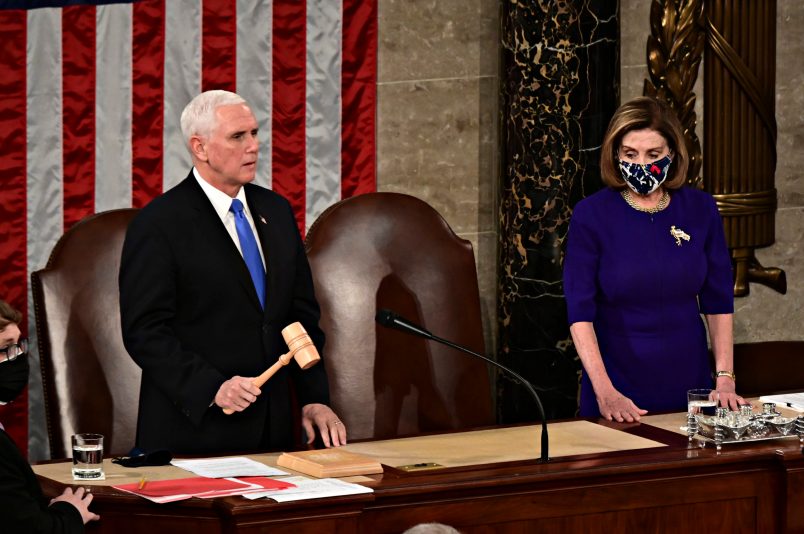After months of negotiations, it now appears to be official: The proposed Electoral Count Reform Act has hitched a ride on the much-anticipated 2023 omnibus funding package that was released Monday night, setting up a path for the legislation to pass the Senate.
“My two-word reaction is thank God,” said Matthew Seligman, a lawyer and fellow at Stanford Law School’s Constitutional Law Center who has tracked the reform effort closely. “I think this means that it’s virtually certain that it will be included in the final bill and the Electoral Count Reform Act will become law.”
Democrats and a handful of Republicans have been negotiating over how to reform the outdated 1887 law — which lays out how presidential electors are counted in Congress — for the past year. The effort to do so was prompted by vagueries in the text that former President Donald Trump and lawyer John Eastman sought to exploit to subvert the 2020 election.
Sen. Susan Collins (R-ME) and Sen. Joe Manchin (D-WV) announced they’d come to an agreement this summer, but it has been unclear for some time whether the legislation would garner the 60 Republican votes needed to clear a filibuster, and whether it would pass before Republicans take over control of the House next year.
But the end game is coming into focus: The Friday government funding deadline is coming up, lawmakers are aiming to pass the massive $1.66 trillion spending bill — and the ECA reform included in it — before then.
“We must finish passing this omnibus before the deadline on Friday when government funding runs out, but we hope to do it much sooner than that,” Majority Leader Chuck Schumer (D-NY) said on Tuesday morning. He added the first procedural votes in the Senate could happen as soon as today.
The ECA reform bill would clarify that the vice president’s role in certifying a presidential election is purely ceremonial and make it clear that they do not have the sole power to address disputes over electors. It would also raise the threshold for Congress to invalidate legitimate electors and for state legislatures to override the popular vote in their states.
This reform is “a critical step to strengthen the guardrails for our democracy and ensure that the will of the voters is upheld following a presidential election,” said Holly Idelson, a counsel with Protect Democracy.
The House already passed its version of ECA reform in September. All Democrats and nine Republicans voted in favor of it.
Idelson emphasized the bipartisan support around ECA reform “shows this is not something to benefit one party or the other.”
“The fact that it was able to make it into the end-of-the-year spending package is in testimony to bipartisan support and support from a swath of outside allies,” she added.
The efforts by former President Trump’s team to take advantage of the 135-year-old law included falsely claiming that then-Vice President Mike Pence had the power to unilaterally throw out elector votes during the official certification process.
The Electoral Count Act is a “very antiquated statute” and it’s “not written in the clearest way,” said Idelson. “Some of the ambiguities that were in it were exploited following the 2020 election, to create the instability and ultimately the violence that we saw around the actual electoral count.”
The exploitation of that ambiguous language was all part of a larger and organized effort by members of the Trump White House, Congress, state-level politicians, and far-right activists to overturn Trump’s loss in the 2020 election.
Pence ultimately did resist Trump’s order to stop the electoral count. But that made him a clear target for the thousands of MAGA loyalists who attacked the Capitol on the day of the electoral certification, chanting “Hang Mike Pence!”
“The threats to democracy that this bill is designed to prevent will remain and persist for decades,” Seligman said. “And the fact that this legislation is going to become law will help guard against those catastrophic risks for generations to come.”










